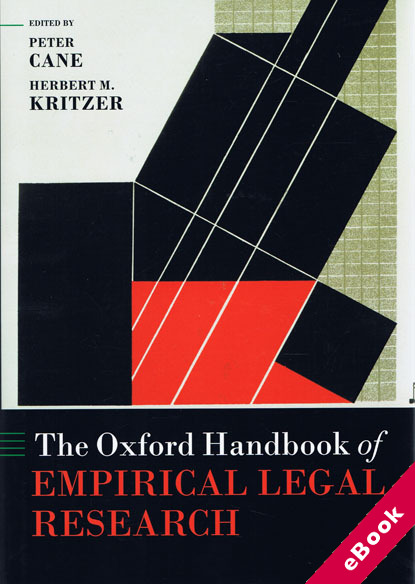
The device(s) you use to access the eBook content must be authorized with an Adobe ID before you download the product otherwise it will fail to register correctly.
For further information see https://www.wildy.com/ebook-formats
Once the order is confirmed an automated e-mail will be sent to you to allow you to download the eBook.
All eBooks are supplied firm sale and cannot be returned. If you believe there is a fault with your eBook then contact us on ebooks@wildy.com and we will help in resolving the issue. This does not affect your statutory rights.
The empirical study of law, legal systems and legal institutions is widely viewed as one of the most exciting and important intellectual developments in the modern history of legal research.
Motivated by a conviction that legal phenomena can and should be understood not only in normative terms but also as social practices of political, economic and ethical significance, empirical legal researchers have used quantitative and qualitative methods to illuminate many aspects of law's meaning, operation and impact.
In the 43 chapters of The Oxford Handbook of Empirical Legal Research leading scholars provide accessible and original discussions of the history, aims and methods of empirical research about law, as well as its achievements and potential. The Handbook has three parts.